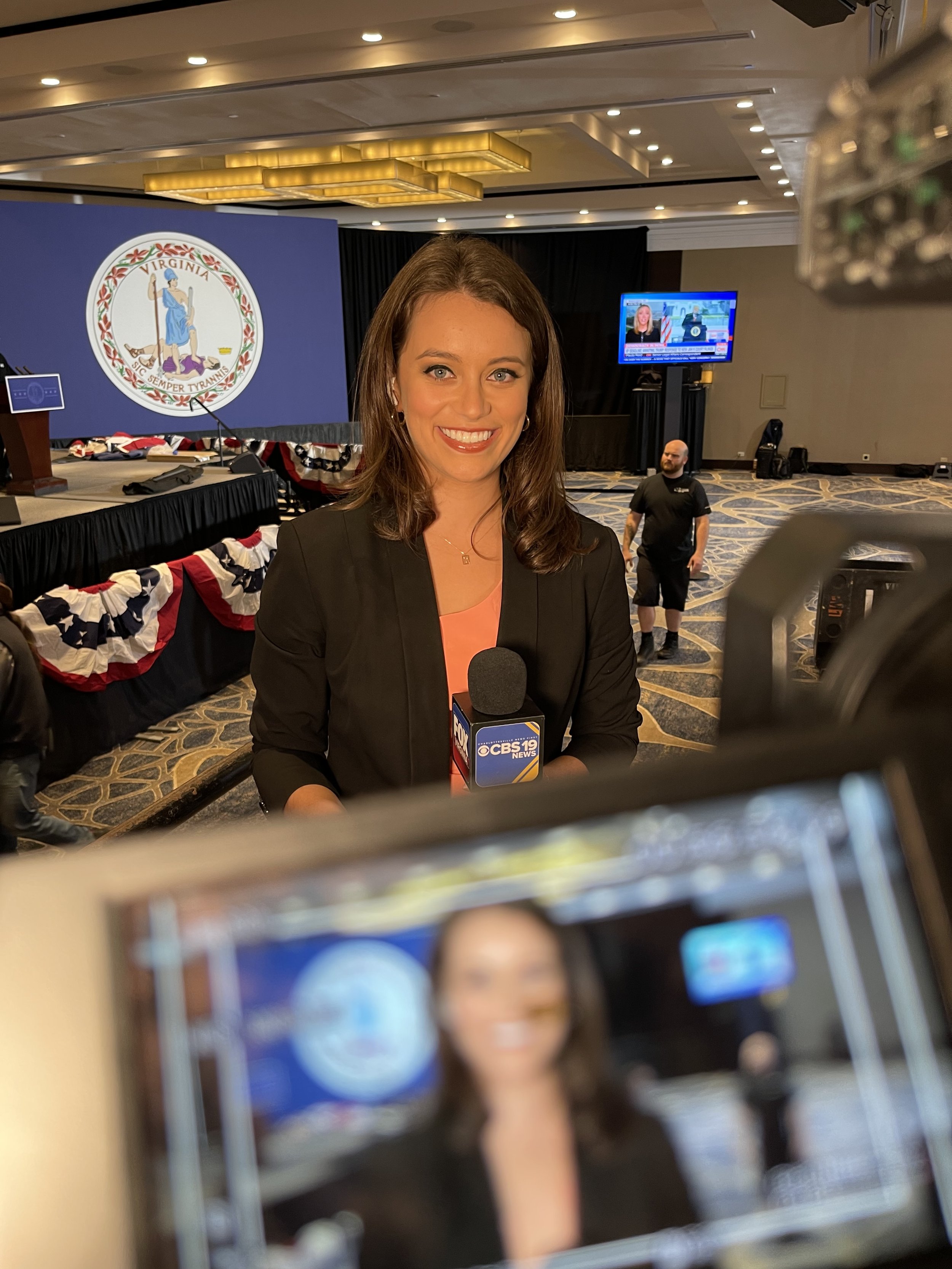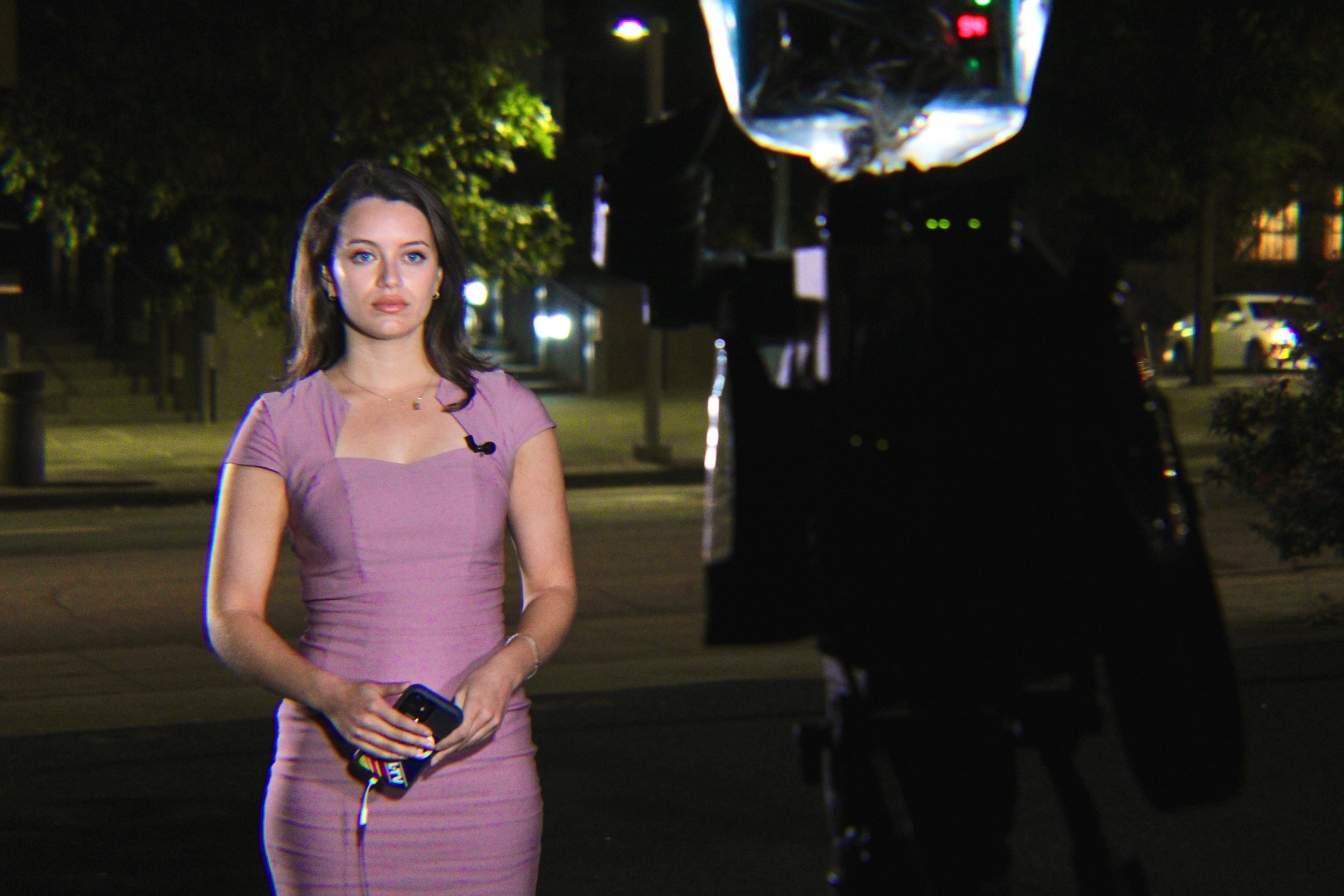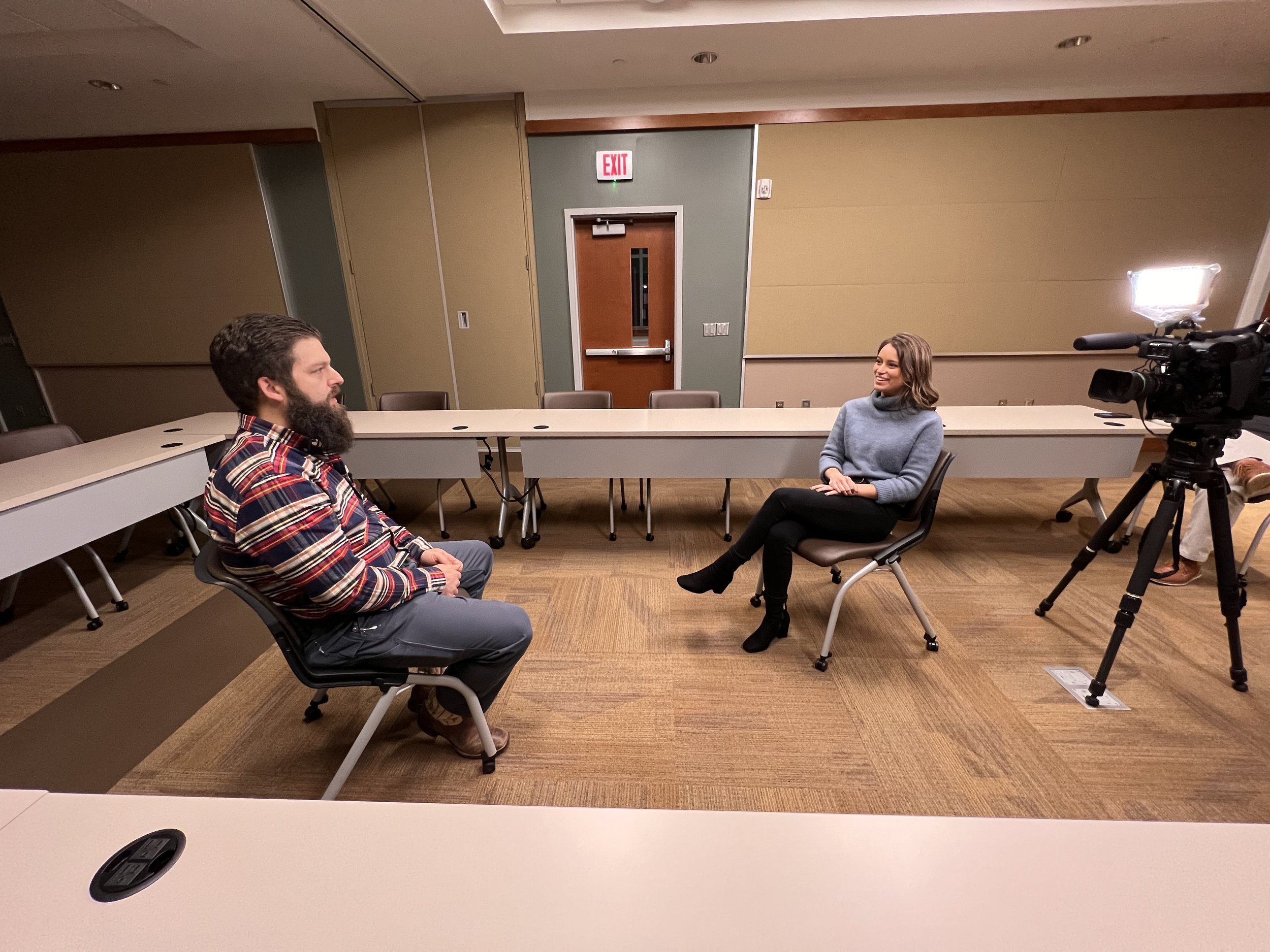Getting My Start
Growing up, I loved making videos with my little plastic camcorder and editing them on our family computer. At school, I was the voice over the PA system every morning doing the announcements.
In high school, I wrote a research paper that evaluated Major Depressive Disorder in rural areas. I used anecdotes and research to question why suicide rates in rural areas were nearly double than their urban counterparts if depression rates were the same, then I put forward solutions.
When people ask “how did you get your start in journalism?” I think of this project, because it helped me identify how I could take my passions for people and information and use it to inspire change and make sense of the world.
Philip Merrill College of Journalism
I was accepted into University of Maryland’s competitive, limited-enrollment journalism program. I tried a little bit of everything: I became a softball beat reporter for a sports publication, I participated in a satirical news radio show and I wrote political pieces. I also was an anchor and reporter for our student-run daily newscast, where we won several national awards.
During my time at UMD, one of my professors recommended that I go to Austria for the summer to study at the Salzburg Academy of Media and Global Change. I worked alongside more than a hundred people from 20 different countries to discuss how to improve media literacy in our rapidly changing media landscape. You can see the program’s finished product here.
I interned at Sinclair’s national bureau on Capitol Hill, where I covered Justice Brett Kavanaugh’s confirmation hearings, then wiggled my way through demonstrators to get a soundbite from Sen. Elizabeth Warren. Stations around the country leveraged my interviews with politicians for their local broadcasts. I later shifted to an internship at NBC Washington in D.C., where I went undercover for a sting operation with the Investigative team to identify a fraudulent business that was cheating customers out of thousands of dollars.
I left for Charlottesville, VA to work at WCAV-TV as a Multimedia Journalist in June 2020. I started as the Nightside Reporter, moved into a Weekend Anchor a few months later, then became our Evening Anchor within a year after that. I covered the removal of the Confederate statues in Charlottesville following the deadly 2017 rally, and President Biden as he traveled to key swing districts in Virginia. I went two hours out at sea on a boat to cover an offshore wind farm (and got VERY seasick). I also had my own investigative series, called “Contact Carly,” where people could call me if they needed help dealing with a shady business or a problematic city policy.
Through my anchoring position, I worked on a weekly segment called “Beyond the Headlines” with the editorial editor of our local newspaper, where we analyzed recent stories and how they fell into the larger context of the news cycle. I also emceed galas and did live coverage for our sponsored events.
WCAV-TV in Charlottesville, VA
WRAL-TV in Raleigh, NC
I threw everything I own into a UHaul in 2023 and headed to Raleigh to work for one of the most well-recognized stations in the country: WRAL-TV.
As a nightside reporter, I typically cover crime stories through an investigative lens. I did a series about a children’s hospital system that employees allege had misled state inspectors via fraudulent patient charts. I spoke with a woman who shared a heartbreaking story about being sexually assaulted by her delivery driver. I’ve covered hurricanes and tropical storms at the coast, school shootings, protests, and high-profile court cases. And of course, NC State basketball’s historic rise as ACC champions!
I’m tasked with constantly learning and evolving, and it’s what I love perhaps the most in this career.
Why Journalism?
One of my favorite quotes of all time is from the Alchemist. It says, “When we strive to become better than we are, everything around us becomes better, too.” That’s why I fell in love with journalism. In the same way journalism can benefit the lives of people, the people I meet and the stories I tell affect me, too. They make me want to improve, and that’s why journalism is so intertwined with my life.
I’m fascinated by people: why we think the way we do, how our experiences shape who we become, and how our problems and feelings add context to history. And I’m passionate about the role of communication in our lives. While forms of communication change, the need for exchanging information and ideas will last as long as people do. It’s what moves us forward.
I am honored to be crafting the culture of our time—filling in the details of the extensive timeline of human history.













